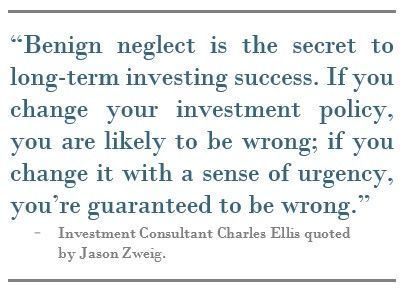Why Financial Decisions are so Hard
June 10, 2020
Have you ever noticed how mentally tired you sometimes get at the supermarket? Do your eyes glaze over at the freezer full of ice cream choices? Do your home decorating projects take forever because you cannot decide what you want?
If you struggle with decisions, I am here to tell you it is not your fault. We are simply not wired very well for today’s world and the complex decisions we need to make.
Our brains have been evolving for about 7 million years, but we Homo sapiens have been around for only about 150,000 years. A 500-page book about brain evolution would devote only the last 11 pages to our big and powerful Homo sapiens brains.
Most of our gray matter evolution took place when we were hunter-gatherers, when our needs and desires were relatively simple and survival driven. We needed to find food, avoid becoming some predator’s food, stay warm and reproduce.
When our primitive selves saw a shadow in the grass, our brain told us to run and climb a tree. It was fast, intuitive, gut-level thinking. Seeking immediate safety was smarter than pondering whether it was a lion, a squirrel or a breeze moving the grass. We were wired to see patterns, think short-term and jump to conclusions.
This type of fast thinking is ingrained in our brain. It operates on autopilot. You have no sense of voluntary control over it. If someone asks you what 2 + 2 is, it comes to you automatically, without effort. You could answer the question if you were sitting in a quiet place or driving your car in rush-hour traffic during a downpour.
But what happens if someone asks you to solve 17 x 28?
You automatically slow down. You know you could get to the answer easily with pencil and paper, but to solve it in your head you would have to break it down into smaller problems and think about holding the numbers in your memory. You can almost feel your brain grinding.
This is not the kind of problem most of us could solve while driving in rainy, rush-hour traffic. If possible, we would postpone our effort on this until we had the time and attention to solve it. Better yet, we would try to get along without solving the problem at all.
Your two brains
This is our amazing two-system brain as described by Nobel Prize winner Daniel Kahneman in his book Thinking, Fast and Slow. It is fascinating and I recommend it.
He labeled the fast, feeling brain as System 1 and the analytical, logical brain as System 2.
System 1 is designed to jump to conclusions. (“It’s a lion! Run!”) System 2 is slower, deliberative, more logical, and analytical. (“We should build our hut near a source of water and the hunting grounds but not too close to where the elephants congregate at night.”)
System 1 does most of the day-to-day work, with System 2 normally in low-effort mode to conserve energy. System 1 makes suggestions to System 2 in the form of impressions, intuitions, intentions, and feelings. System 2 is sort of lazy, so it usually takes the suggestions of System 1 and things run smoothly. You trust your intuitions and emotions and act on them.
This is how our brains evolved. We are programmed to act on instinct and solve simple problems on the fly. When the problem is complicated or vague, or we have too many choices, we tend to get bogged down or fall back on what is familiar.
Instead of fully pondering the spectrum of ice cream choices, trying to juggle all the brands, flavors, prices, and calorie counts, we pick the one we had last time. If we can avoid a complex decision, we will.
We are wired primarily for System 1 thinking but live in an increasingly System 2 world.
We want shortcuts
How does our two-system brain deal with financial decision making? I think it is fair to say most people struggle with it. We avoid, ignore, and procrastinate. We look for ways to bypass decisions that require research, evaluation of alternate strategies or messy calculations.
Investors are often led to mistakes by their System 1 brains. System 1 is always ready to take over when System 2 lacks the time and energy to grind out an answer. This evolutionary bias plays out in several familiar ways.
We see patterns that may not be there
Pattern recognition helped our ancestors understand that there were seasons for planting and seasons for harvesting, that dark clouds meant rain and that a movement in the grass might be a lion.
We instinctively look for patterns in investing. Unfortunately, it’s easy to see a pattern that isn’t there. If stock prices go up three days in a row, it feels like a trend that will continue. If the industrial equipment sector does well in two consecutive summers, surely it is a smart buy for the third summer.
Pattern recognition causes investors to chase “hot” money managers or market sectors the way a gambler bets on “hot” dice. Other investors believe charts of market data hold patterns that can predict price movements even when there is no evidence this is true. The entire financial news business is built on forcing disparate events into cause-and-effect relationships. (“Stocks plummeted today on a rise in oil prices…”)
Investing technology allows us to track and parse security prices like never before. Fancy graphs with colorful lines trace minute-by-minute price movements. System 1 wants to see patterns in all of this and often does, leading to instinctive, not rational, investment choices.
We overvalue surprises
Thousands of years ago, it was very important for our brains to recognize things that were unusual. Perceiving and reacting to surprises – a predator in camp or a fast-rising river – helped keep us alive. System 1 saved us from danger.
We are wired to handle modern-day surprises in the same way but retreating from every event outside the norm ensures terrible investment results. If you got out of the stock market every time the market fell unexpectedly or a terrorist event occurred or a major political crisis unfolded, you’d be out of the market more than in it, and you wouldn’t participate in the long-term benefits of capitalism.
System 1 lives moment by moment. It’s not looking 30 years ahead to retirement. We must force System 2 to get involved in longer-term investing decisions.
We trust our emotions
Making investment decisions would not be so difficult and intimidating if we had perfect information and a clear picture of what the future holds. But we have neither. When System 1 does not have all the facts, it fills in the holes with emotions.
Investing can be very emotional. Especially in times of uncertainty, financial decisions can be derailed by fear, greed, panic, and impatience. Even a positive emotion like confidence can lead to some poor choices.
I would be the last person to advocate a life without emotions , but in making long-term investing decisions it is important to understand how strongly emotions can push us further and further away from the System 2 rationality we need.
A defense against System 1
An Investment Policy Statement (IPS) is a written document that acts as a guide for what you want your money to do for you and those you love.
You can think of the IPS as a sort of rule book or operating manual for your investments. It is based on your unique set of hopes, dreams, goals, and fears. The policy statement needs to be in writing and should be signed by you and your advisor. It should include your target asset allocation (mix between stocks and bonds), and it should be updated on a periodic basis as your life evolves.
When your System 1 brain wants to respond to patterns, surprises and emotions, the IPS is the rational, rules-based guidepost that reminds you of what you are trying to do and the plan you have committed to. The IPS is developed with the kind of methodical System 2 thinking you need when System 1 is doing everything it can to control your behavior.
I do not think it is realistic to believe we can automatically become disciplined, non-emotional investors by simply writing a policy statement, but we have to start somewhere. An IPS might mollify your temperament and help you stick to your plan when emotions take over in good markets (greed and envy) and bad markets (fear and panic).
As Daniel Kahneman once said,
This post appeared first on www.fmfewealthmgt.com.

5333 N 7th St Bldg. A, Suite #200 & #201
Phoenix, AZ 85014
All Rights Reserved | ATR Law Group


